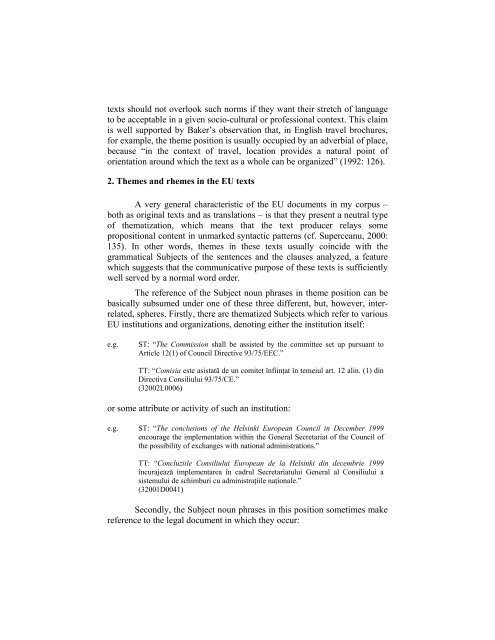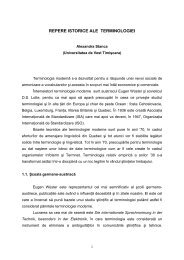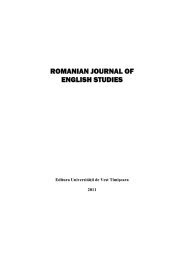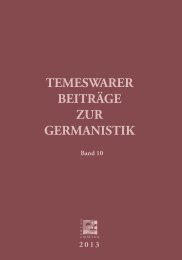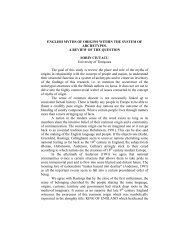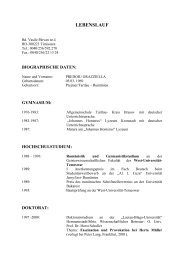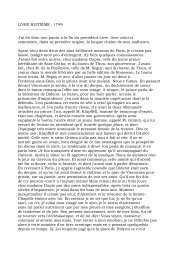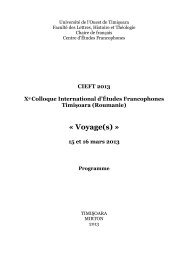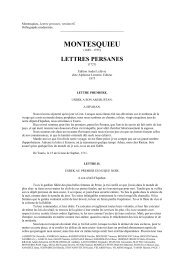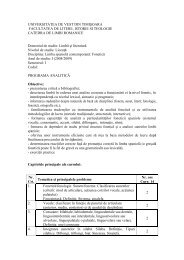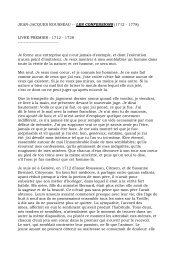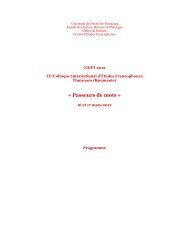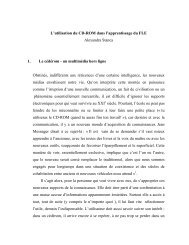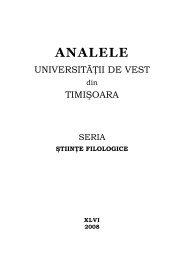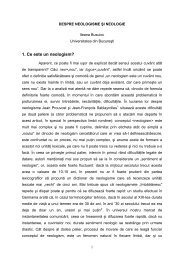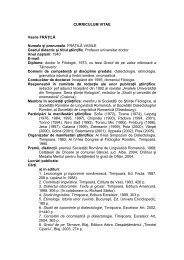TRANSLATION AND MEANING: A CULTURAL- COGNITIVE ...
TRANSLATION AND MEANING: A CULTURAL- COGNITIVE ...
TRANSLATION AND MEANING: A CULTURAL- COGNITIVE ...
Create successful ePaper yourself
Turn your PDF publications into a flip-book with our unique Google optimized e-Paper software.
texts should not overlook such norms if they want their stretch of language<br />
to be acceptable in a given socio-cultural or professional context. This claim<br />
is well supported by Baker’s observation that, in English travel brochures,<br />
for example, the theme position is usually occupied by an adverbial of place,<br />
because “in the context of travel, location provides a natural point of<br />
orientation around which the text as a whole can be organized” (1992: 126).<br />
2. Themes and rhemes in the EU texts<br />
A very general characteristic of the EU documents in my corpus –<br />
both as original texts and as translations – is that they present a neutral type<br />
of thematization, which means that the text producer relays some<br />
propositional content in unmarked syntactic patterns (cf. Superceanu, 2000:<br />
135). In other words, themes in these texts usually coincide with the<br />
grammatical Subjects of the sentences and the clauses analyzed, a feature<br />
which suggests that the communicative purpose of these texts is sufficiently<br />
well served by a normal word order.<br />
The reference of the Subject noun phrases in theme position can be<br />
basically subsumed under one of these three different, but, however, interrelated,<br />
spheres. Firstly, there are thematized Subjects which refer to various<br />
EU institutions and organizations, denoting either the institution itself:<br />
e.g. ST: “The Commission shall be assisted by the committee set up pursuant to<br />
Article 12(1) of Council Directive 93/75/EEC.”<br />
TT: “Comisia este asistată de un comitet înfiinţat în temeiul art. 12 alin. (1) din<br />
Directiva Consiliului 93/75/CE.”<br />
(32002L0006)<br />
or some attribute or activity of such an institution:<br />
e.g. ST: “The conclusions of the Helsinki European Council in December 1999<br />
encourage the implementation within the General Secretariat of the Council of<br />
the possibility of exchanges with national administrations.”<br />
TT: “Concluziile Consiliului European de la Helsinki din decembrie 1999<br />
încurajează implementarea în cadrul Secretariatului General al Consiliului a<br />
sistemului de schimburi cu administraţiile naţionale.”<br />
(32001D0041)<br />
Secondly, the Subject noun phrases in this position sometimes make<br />
reference to the legal document in which they occur:


